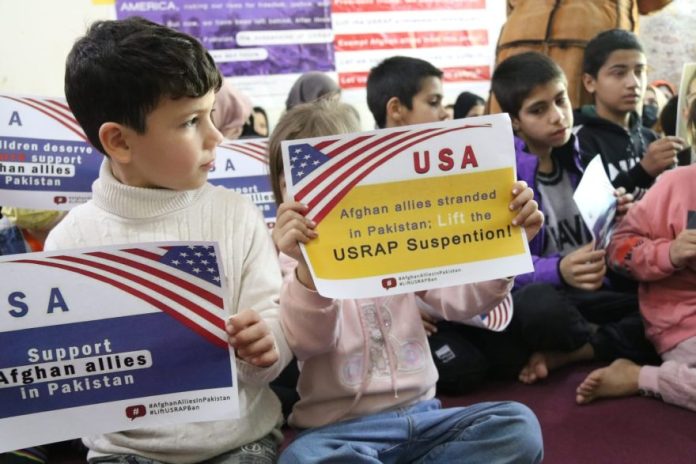Ishaq Dar, Pakistan’s Foreign Minister, has warned that if the cases of thousands of Afghan citizens waiting for resettlement in the United States are not processed on time or are rejected, they will be deported back to Afghanistan. He made these comments in a television interview with the national
The Pakistani official warned that, “If any refugee whose case has been accepted by another country is not processed on time—without considering the deadline—and that country rejects them, then for us, this would be an illegal immigrant in Pakistan, and we may have to send them back to their original country, Afghanistan.”
Ishaq Dar emphasized that Islamabad is monitoring the situation and, based on this, will engage in negotiations with Washington. According to the Pakistani diplomat, the United States has promised to transfer Afghan refugees awaiting resettlement to the U.S. “probably around September of this year.”
Donald Trump, the U.S. President, suspended the resettlement program for refugees, including Afghan citizens, immediately after his inauguration by signing executive orders. This included halting flights for 1,600 individuals until further notice.
Following this order, Reuters reported, citing a refugee advocacy group and a U.S. official, that Trump’s executive order led to the suspension of flights for over 40,000 Afghan citizens holding Special Immigrant Visas (SIV), who were waiting to be resettled in the U.S.
Previously, Pakistani Interior Ministry officials had urged Western countries like the U.S. to expedite the resettlement process for 20,000 Afghan refugees. They warned that if delays continued, these refugees would be deported back to Afghanistan.
Recently, Reuters reported, citing informed sources, that officials handling the resettlement of eligible Afghans to the U.S. have been warned to prepare for the program’s closure by April of this year.
The situation has drawn significant criticism, with figures like Shawn VanDiver calling the U.S. decision to suspend Afghan flights a “national disgrace” and a “betrayal of Afghan allies.” Vandiver emphasized the commitment to veterans who fought alongside the U.S., stressing that such actions betray those who stood by American forces.
As the U.S. and Pakistan negotiate the future of Afghan refugees, the pressure to resolve the situation intensifies. The looming threat of deportation and the uncertainty surrounding resettlement continue to affect thousands of Afghan citizens, while the global community watches closely.









































